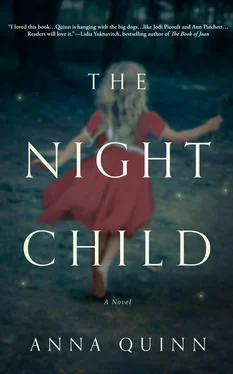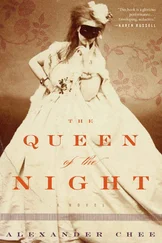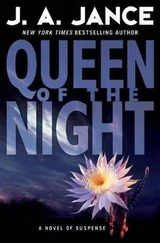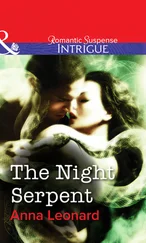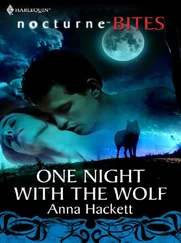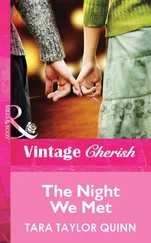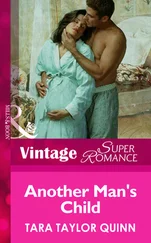“[Quinn] made me care about Nora and identify with her. That’s a very wonderful and difficult accomplishment.”
—DOROTHY ALLISON, New York Times bestselling author
“A powerful, heart-wrenching psychological tale… The Night Child’s gentle dealings with heavy subjects highlight the fragility of the human mind.”
—Foreword Reviews
“ The Night Child is a remarkable, gutsy, beautifully written journey through darkness and into light, frightening and thrilling, a freight train of a read!”
—Bill Ransom, author of Burn
“A wondrous journey into the heart of survival, and our power to save our own lives…This is a remarkable book.”
—Rene Denfeld, author of The Child Finder
“The galvanizing story of how the world ends and how it begins again: child by child.”
—Rikki Ducornet, author of Brightfellow
“Quinn’s debut novel is stunning in its profound emotional authenticity and the luminosity of the prose…Nora’s quest for truth is, ultimately, transformative.”
—Sue William Silverman, award-winning author of Because I Remember Terror, Father, I Remember You
“Shows us that on the other side of harrowing there is healing. Anna Quinn writes for those who have been silenced and gives them a voice in Nora.”
—Erica Bauermeister,
bestselling author of The School of Essential Ingredients
“A flat-out page-turner that will have readers riveted.”
—Adrianne Harun, author of A Man Came out of a Door in the Mountain
“Anna Quinn has created a story that reads like a thriller, one with the beating heart of a vulnerable child, and with the urgency of a woman unlocking her own psychic drama.”
—Sonya Lea, author of Wondering Who You Are
“An incredible book…Beautifully, artfully, and poetically carries each of us into the profound layered mysteries of our own minds and hearts.”
—Susan Wooldridge, author of Poemcrazy: Freeing Your Life with Words
“This book captivated me…Tremendous empathy, propulsive storytelling, and great reverence for the complexity of healing.”
—Melissa Febos, author of Whip Smart
The Night Child: A Novel by Anna Quinn

For all the children waiting for us to save them.
CHAPTER ONE: November 27, 1996
Nora glances at the clock above the classroom door. Thirteen minutes until she will retreat with her husband and daughter to the Washington Coast. Every Thanksgiving since she and Paul have been married, fifteen years now, they’ve rented a room at the Kalaloch Lodge, a 1930s inn standing on a bluff above the rocky shore. Though it’s only a few hours from Seattle, it feels as if they’re visiting a distant relative, and it’s better than sitting together, alone in the city.
“This book has no plot, no conflict,” mumbles Jason, a sixteen-year-old underachiever who surprised everyone, including himself, when he passed the AP English test and secured a place in Nora’s class. Now it’s her job to get him into an Ivy League school—God, the way his mother hovers and pushes!
“You’re an idiot,” Elizabeth says to him. Gorgeous, brilliant Elizabeth, the girl who does everything possible to disturb. The girl who smears black around her eyes, dyes her hair an unnatural obsidian, and cuts it into angry asymmetrical lengths that hang over half her face.
They are discussing Woolf’s To the Lighthouse, and they are distracted—impatient for the weeklong break. “What do the rest of you think?” Nora asks in an unusually quiet voice, walking between the rows of desks. She knows she should say more—she loves this book. She wants to discuss daring writers—how they sometimes veer off traditional plot trajectories, that not every story has a beginning, middle, and end, and yes, Jason, there is conflict! Look at the power the father exerts over the son, the need of the mother to keep her son a child forever, how badly Lily wants to paint. There’s so much Nora wants to say, so much she wants to ask them, but a headache is growing from the base of her skull, like someone piling stones in her mind, flattening her thoughts, weighing her down.
“Plot means action,” Jason says.
“God, the action’s in their heads, you cretin,” Elizabeth says, drawing skulls on the cover of her notebook and darkening the eye sockets, her fingers thin as pencils, her nails bitten to the quick, the stubs of them painted pitch black.
“No wonder she killed herself,” Jason says with a smirk.
Darkness falls across Elizabeth’s face then, but before Nora can say anything, the bell rings, the bodies bolt out the door, and Elizabeth is gone.
Nora walks slowly to her desk and collapses into her chair. She looks at the empty desks. “I don’t know any of you,” she says, wearily. She used to be energized by teaching, awakened and alive, used to go home and say, “How did I get so lucky, that this is what I get to do?” She used to allow students to write what they wanted, what they needed to, recommended books to them, offered options until their faces opened and their defenses dropped. But now, so many kids crammed in a small space, so many government requirements and ulterior motives—she has grown depleted and a bit hopeless.
It happens then.
A subtle movement of air behind her. More than a quiver of wind, more like someone exhaling. She turns around quickly. No one. But again, in front of her, another whisper. Her skin tightens and a chill shoots through her. She turns around. No one. Another movement. “What is it?” she says, aloud.
Oh, God. Panic tightens her chest and chokes her breathing. In front of her, a girl’s face, a wild numinous face with startling blue eyes, a face floating on top of shapeless drapes of purples and blues where arms and legs should have been. Their eyes meet and terror rushes through Nora’s body—the kind of raw terror you feel when there’s no way out, when every cell in your body, your entire body, is on fire—when you think you might die.
A moment later, the face is gone.
Nora sits for a few moments, heart beating fast, still in its grip. What the hell was that? Did some little asshole put something in my coffee? Am I so tired I’m hallucinating? Shit.
She takes deep breaths, rubs her eyes hard with the heels of her hands, and stares at the place where the face had floated moments ago. Nothing. Nothing is there any longer. The face has gone. Okay then. You are fine now. You are fine. You just need rest, that’s all. Just some rest.
A man’s voice behind her says, “Ready for the break?”
She turns around, blood still pounding in her ears. “John,” she says, her voice a whisper. John in his slouchy tweed blazer, his hands plunged into his jean pockets as if he were just a teacher killing time between classes, not the principal of Lincoln High. The strength and warmth of him as he leans against the doorframe. The broad set of his shoulders, the ease of his grin, touch her and, in this moment, calm her racing heart.
“You okay?” he asks, closing the door and walking into the room.
She blinks fast, tries to blink away the blue eyes still bright at the edge of her mind. For a moment she considers telling him, telling him what happened—they’ve been friends for so long. She considers telling him, but her mouth doesn’t feel right, doesn’t feel like it can move enough to describe what she saw, but she tries to speak anyway, though only two words, “ I’m fine,” come out and the words seem muffled, seem far away, not her voice at all, and she doesn’t attempt to say more. She stands then, even though her legs tremble and for a second she holds onto the desk and John reaches for her with both hands, clutches her arms, asks her again if she’s okay and she says again that she’s fine, just tired, and she smiles a little to reassure him. He drops his hands when she reaches for her coat on the back of the chair. She pulls her coat on, buttons it slowly, watches her fingers push each black button into its hole, aware her fingers don’t feel like they belong to her at all. And now, his hand touching her arm again.
Читать дальше
